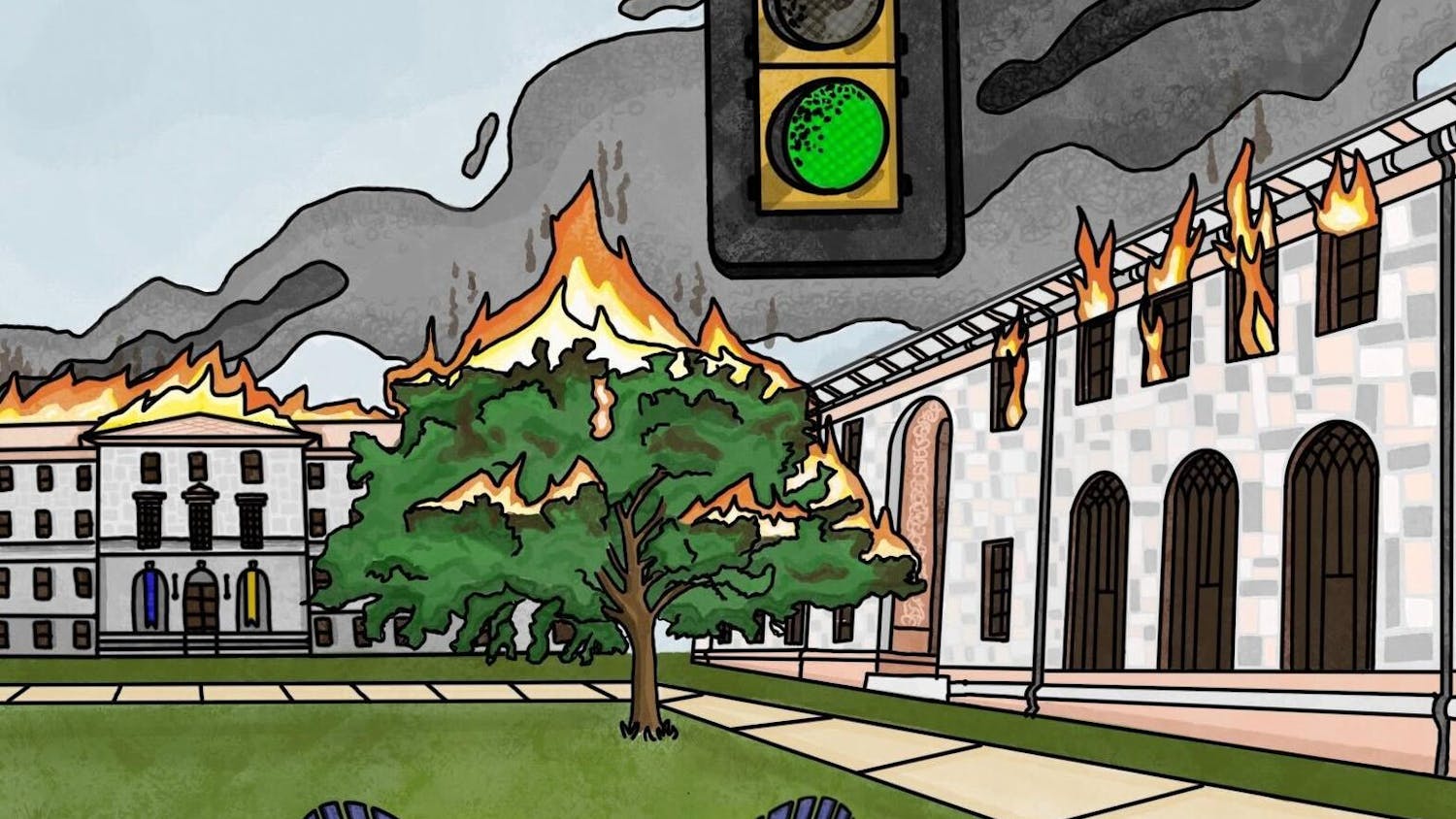When David Leonhardt wrote about his dissatisfaction with the amount of students choosing to double major in a Oct. 24 New York Times op-ed, he both ignored shifts in the job market that have created new incentives to double major and overlooked the merits of a more holistic education. He compares the educational landscape to a “credential arms race among teenagers,” touting the need to one-up each other academically in order to feel competitive with our peers. He also attempts to devalue double majoring by claiming that it exacerbates a classist inequality.
In a 2013 article in the Columbia University newspaper, The Columbia Spectator, faculty and staff expressed a similar concern, claiming that many students only double major because they feel a second line on their degree makes them look better to future employers and graduate school programs. Both articles question the motivation of college students when it comes to choosing their academic path and make assumptions about the inequality double majoring creates while ignoring the academic reality of the educational landscape.
One of the Leonhardt’s major arguments is that students are double majoring solely for the appearance of added achievement.
“The number of double majors has soared in recent years mostly because students see it as a way to add one more credential to their resume,” Leonhardt wrote.
Leonhardt is right about one thing — the number of double majors have soared over the years. Roughly 30 to 40 percent of undergraduate students double major, according to the Chronicle of Higher Education. However, when Leonhardt attributes this increase to competition for credentials, he undermines the ability of a 20-year-old to make important decisions about their time and their future. Twenty year olds are young adults who have a diverse set of interests and should be trusted to make decisions about their future based on more than a shallow desire to one-up their peers.
Additionally, the job market has substantially changed. In 2013, 62 percent of college graduates were in a job that required a college degree, but only 27 percent were in a job related to their major. For some students, their degree no longer determines the exact field they will pursue. Having a diverse knowledge base allows one to have general areas of interest, while simultaneously being more flexible in a job market that requires a degree but doesn’t specify what that degree should be. For example, I’m double majoring in political science and media studies. My combination of degrees allows me to work in politics, public relations, communications, advertising, production, journalism or political communications. The list goes on. In college, I’m not training for a job; I’m training for a diverse job market with a diverse set of career possibilities. Understanding that difference is integral to understanding college culture.
Leonhardt also claims that double majoring reinforces income inequality, because it gives students an unfair advantage in the job market just because they can afford to enroll in more classes. While well-off students are bound to have more leeway than peers who struggle financially, the disparities may be less dramatic than suggested by Leonhardt’s column. One reason is that many schools (including Emory) use “plateau tuition,” basing tuition on part-time versus full-time enrollment instead of on credit hours. This change was originally enacted by many schools to encourage better graduation rates, but it has the unintended benefit of allowing students of any income to take more classes without paying more. Additionally, no matter how many AP or IB credits a student enters college with, most colleges require at least 120 credit hours to graduate, more than enough credits to allow for a double major.
Moreover, both the The New York Timesand The Columbia Spectator piecesargue that the time that students aim to “fill up” with a second major would be better spent collecting a liberal arts conglomeration of classes. Neither article acknowledges, however, that completing a double major can lead to precisely that mixture of classes; many who double major choose to do so across the STEM and humanities divide. Additionally, general education requirements like Emory’s exist as safeguards to ensure graduates have well-rounded and diverse skill sets.
Leonhardt is correct that double majoring ups the competition between undergraduates. Unfortunately, you can’t eliminate competition in college. In an economy where the cost of rent and tuition is increasing faster than wages and 61 percent of entry-level jobs require three or more years of experience, it’s not double majoring that is making college too competitive — it’s the job market.
And yet, the very generation that seems to be telling us we’re working too hard also tells us that we are entitled and are ill-prepared for the job market. While Leonhardt (who “barely completed one major” at Yale) may be fortunate enough to criticize those who take on more complicated academic trajectories, students are simply following their academic passions. It’s about trying to succeed in an increasing competitive global economy — not about arbitrary competition among peers, as Leonhardt suggests.
Alexandra Grouzis (21C) is from Nashville.
Read More
Trending









